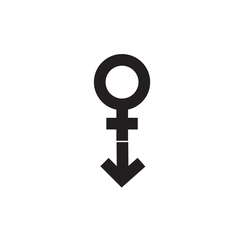|
The census is a chance once a decade, for a country to reflect on itself. The recent census of India show us facts and figures about ourselves, that give some indications of our culture and mindset. The gender ratio, is still pretty skewed, especially in the states of Punjab, Haryana, Uttar Pradesh and Rajasthan where the odds are really stacked against women. For some strange reason, large parts of India are obsessed with the male child. Mothers and fathers do not consider their families complete or 'blessed' till the arrival of a male heir. Occassionaly this male heir will grow up to be an unemployed, wife-abusing drunk. And the abused wife is once again craving for a son, ignoring her daughters, recreating the whole cycle.
The more things change, the more they stay the same. One can somewhat understand the centuries-old desire for a male child in rural areas, or amongst the uneducated. But what is more (and seriously) alarming is this desire for a son even amongst educated, wealthy citizens, living in cities like Mumbai and Delhi. Female foeticide is still prevalent, among all sections of society. A brilliant paper by Amartya Sen titled More Than 100 Million Women Are Missing, (title self-explanatory) sheds light on some some alarming realities. Moving closer home, where are all the women in design? I studied Applied Art, where there were mostly women. Then I came to study at NID, where there were still more women! Some disciplines such as graphic design and textile design, have women in greater numbers than their male counterparts. But one sees very few women at top level positions in design, or running design firms. Off-hand I can only think of Sujata Keshavan (Brand Union) and Divya Thakur (Design Temple) in India. There are some women running businesses, media houses, ad agencies, publishing etc., but not much is known about them. On the other hand, one can immediately think of several foreign female designers: Jessica Helfand, Paula Scher, Zaha Hadid, Leila Vignelli, Debbie Millman, Marian Bantjes, Ellen Lupton, and more. There is a dearth of female role models in design in India. Type 'famous female designer India' and Google throws up a list of interior and fashion designers, with Tarun Tahiliani as the seventh link. (guess Google still can't tell gender apart ;-) What happens to the thousands of female students at these design schools? Where do they all go afterwards? Is it so hard for women to climb the success ladder? Probably yes, with long work hours, family pressure, and the occasional man who resents a women's success. India may be a rising nation, the next economic superpower, and we may even be able to finally do something about our corruption, but the basic attitude towards women is still stuck in the Dark Ages. Why else do men on the street behave the way they do? Why do foreign visitors get harassed even when decently dressed? Make no mistake, even at the best of places, anywhere, there is always a creep hanging around the corner. Maybe it all stems from the fact that a girl has to be married fast and young. Before she grows a mind of her own. Career is acceptable, but upto a point. Independence is not preferable. Read the ads in the Matrimonial section of any paper and you will know what I mean. There are fixed words used in almost every matrimonial ad 1) Everyone wants 'fair' in a country of wheatish complexion. 2) 'Domesticated', because women are wild animals that need to be lassoed and tied up. No 'junglees' wanted. 3) 'Homely', as opposed to what? Shop-ly? Collegely? Stupidly? In the matrimonial zone, its a man's market at the moment. Personal friends, perfectly decent, intelligent, wonderful women, can't find prospective grooms because they aren't fair enough, homely enough, or (the worst) earn too much! I would like to place a new matrimonial ad. Wanted: Dark, wild and undomesticated woman. Must not give a dam about her face, hair, skin, the beauty parlour or men. Must possess independent, fully functioning brain. Preferably has a career. Cooking, cleaning and housekeeping skills non-essential. Must look like a healthy Indian girl and not a plastic doll. If you say you are 29, and unmarried, you get a pitying look (even though its your choice). If you say you have only one sister, you get another pitying look along with, "What! No brother! How sad for you and your parents." I tell them, show me a dutiful son, and I can show you ten dutiful daughters. Gandhi was right when he said, "Unfair treatment of women is a disease as bad as untouchability." It's the worst form of racism. Yet, things are much better for women now than they ever were in the past. Meanwhile, I'm still hunting for that top-shot female design person in India.
7 Comments
|
Archives
June 2018
Categories
All
LinksThe New Yorker Old Blogs |

 RSS Feed
RSS Feed
